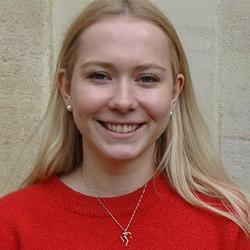I’m a new PhD student co-supervised by Dr Alice Reid from the Geography and the Cambridge group of population studies and Professor Susan Ozanne from the Bio-chemistry department. The title of my research project is: Early-life and intergenerational effects on later-life outcomes over the long-term, and is situated between human geography, history, demographics and bio-chemistry.
The research project will explore, for now, two main themes, using two main datasets: I hope to use detailed Derbyshire Health Visitor records from the 1918-1920 Spanish flu epidemic to study the short- and long-term impact of influenza on infants during gestation and the first year of life. I will also look at the relationship between infant mortality and the foetal origins thesis, and hope to use knowledge from bio-chemistry to add in a novel aspect of how these factors actually propagate into change. Secondly, I will use the Cambridge Group Family Reconstitution dataset which maps families in England back to the 1500s up until the 19th century to study infant mortality clustering in England, and intergenerational fertility and mortality rates. I am particularly interested in historic infant mortality clustering across generations and how and why these links were broken. Again, I hope to use bio-chemistry and a wide range of studies from present day parallels, for example countries that are currently going through a similar demographic change. Through these ideas, I hope to expand our understanding of the mechanisms through which infant mortality is propagated individually and across populations, and how in utero environments are impacted by exogenous factors. I am keen to contextualise and link this with health inequality, and to expand the understanding of how epigenetics and infant mortality manifest themselves biologically through a social science lens.


